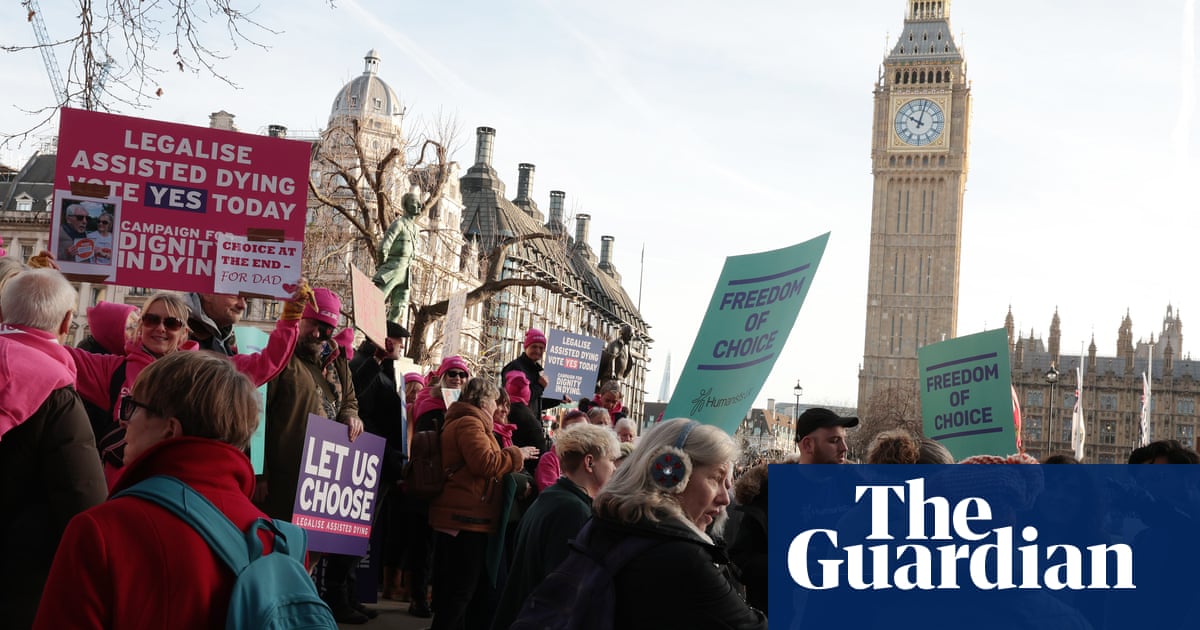A long-awaited assessment of the impact of assisted dying legislation will put a price on administrating the procedure for the first time and is expected to conclude it will save parts of theNHSmoney by accelerating the deaths of terminally ill people.
The Whitehall document, which is expected as soon as Friday, is likely to make difficult reading for both sides of the campaign, government sources have suggested.
One warned the language used in the impact assessment could be dehumanising as it set out to quantify the costs and savings of the state helping people to end their lives inEnglandand Wales.
It is expected to put a figure on the costs of enacting the change, including a tribunal-style system for assessing requests for an assisted death and potential costs to the health service.
But it will also assess if there will be savings from allowing people with intensive care needs to end their lives more quickly. The bill would only allow terminally ill people with fewer than six months to live to end their lives.
The document, which has been prepared by civil servants, will also assess equality and human rights issues.
The timing of the release has caused some anger among MPs who suggested the report was being deliberately released to coincide with the aftermath of the local elections. But one government source denied it was a deliberate comms ploy. “When something like this is ready, you can’t sit on it,” they said.
The Labour MP Meg Hillier, whovoted against the bill, said: “Releasing this long-delayed impact assessment while MPs are focused on local election counts far from Westminster and only weeks before the bill comes back to parliament is another example of the failure of this process to live up to the promises made to MPs at second reading.
“This is a weighty piece of legislation, with significant changes from second reading, such as theremoval of the high court judge. It’s essential that MPs have a real opportunity for proper scrutiny and improvement to do justice to a bill of such consequence and to all those potentially impacted by it.”
MPs will vote again on the private member’s bill, sponsored by the Labour MP Kim Leadbeater, on 16 May after it was delayed by three weeks to avoid a clash with local elections and allow more time for the impact assessment to be prepared.
The Commons speaker, Lindsay Hoyle, is said to have resisted calls for the final Commons stage to be wrapped up that day and – should the bill pass in May – a final vote is expected on 13 June.
Campaigners who oppose the change have stepped up efforts in recent weeks to get wavering MPs to change their minds and vote against the bill in a fortnight’s time.
Labour MPs organised a “committee of the unheard” with campaigners against the bill who were not among those experts chosen to give evidence to the bill’s scrutiny committee. The bill had a majority of 55 at the last parliamentary vote, needing 28 MPs to change sides.
But those in favour of the bill believe there are few who are changing their minds – just two have gone public so far.
“Every media outlet that is looking to run ‘support draining away’ stories has so far failed to identify a single MP other than two from Reform who have switched to opposing the bill,” one of those backing the bill said.
“MPs now have the chance to examine a bill that has been made even stronger and safer when it returns to the Commons on 16 May. They will make their own minds up and not be influenced by opponents who claim to know what they think but don’t.”
The government has taken a neutral position on the bill, with MPs voting according to their conscience. Plans are being drawn up in the Department ofHealthand Social Care for the care minister, Stephen Kinnock, to take over the implementation of the bill should it pass the Commons. The health secretary, Wes Streeting, has said he opposes the bill.
Since the initial vote, the high court’s role in approving assisted deaths has been scrapped and replaced by a panel of experts. Additionally, the implementation period has been doubled to a maximum of four years for an assisted dying service to be in place.
The legislation argues that someone in England andWaleswho is terminally ill, with fewer than six months to live, should be legally allowed to end their life, as long as it has been approved by two doctors and an expert panel.
